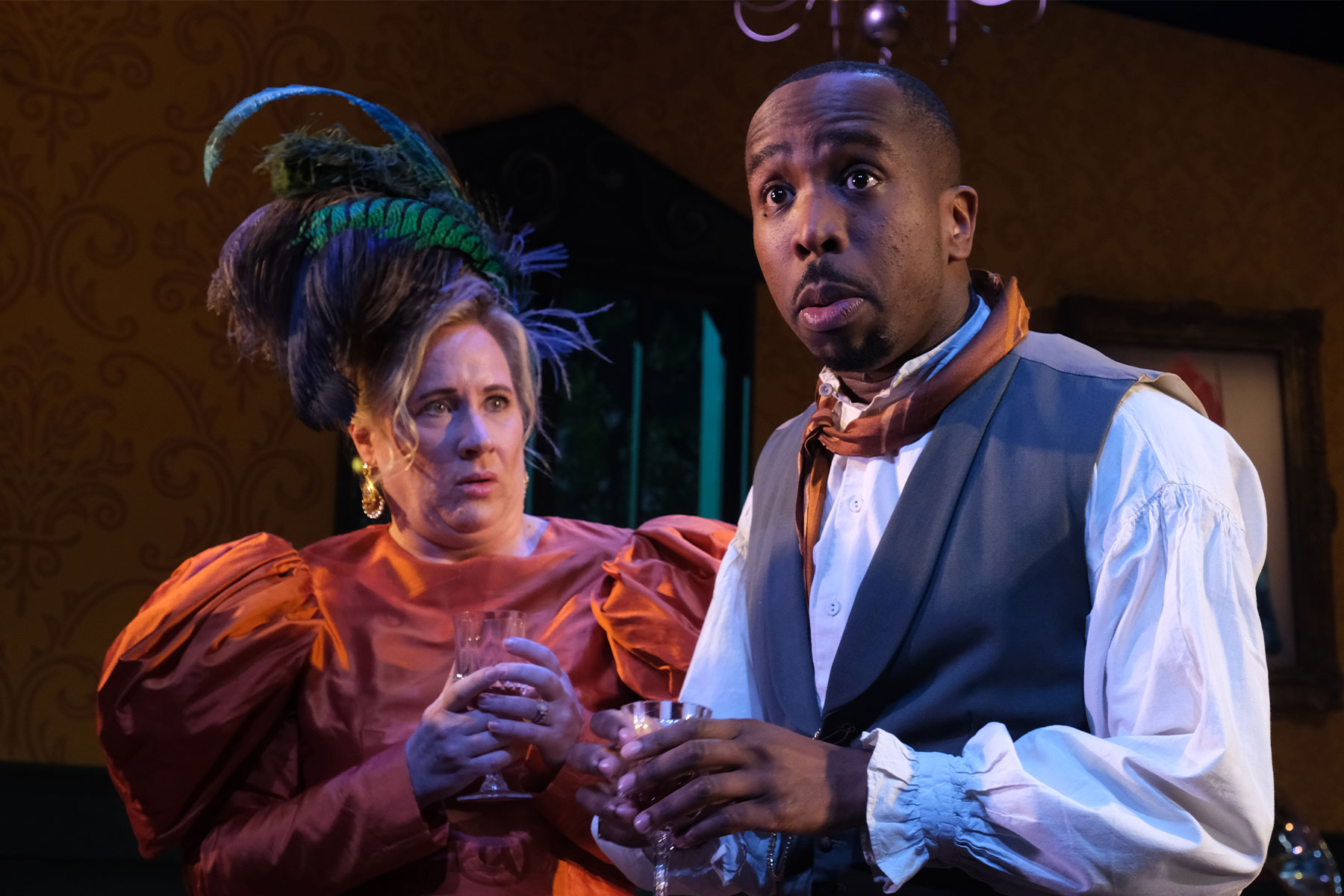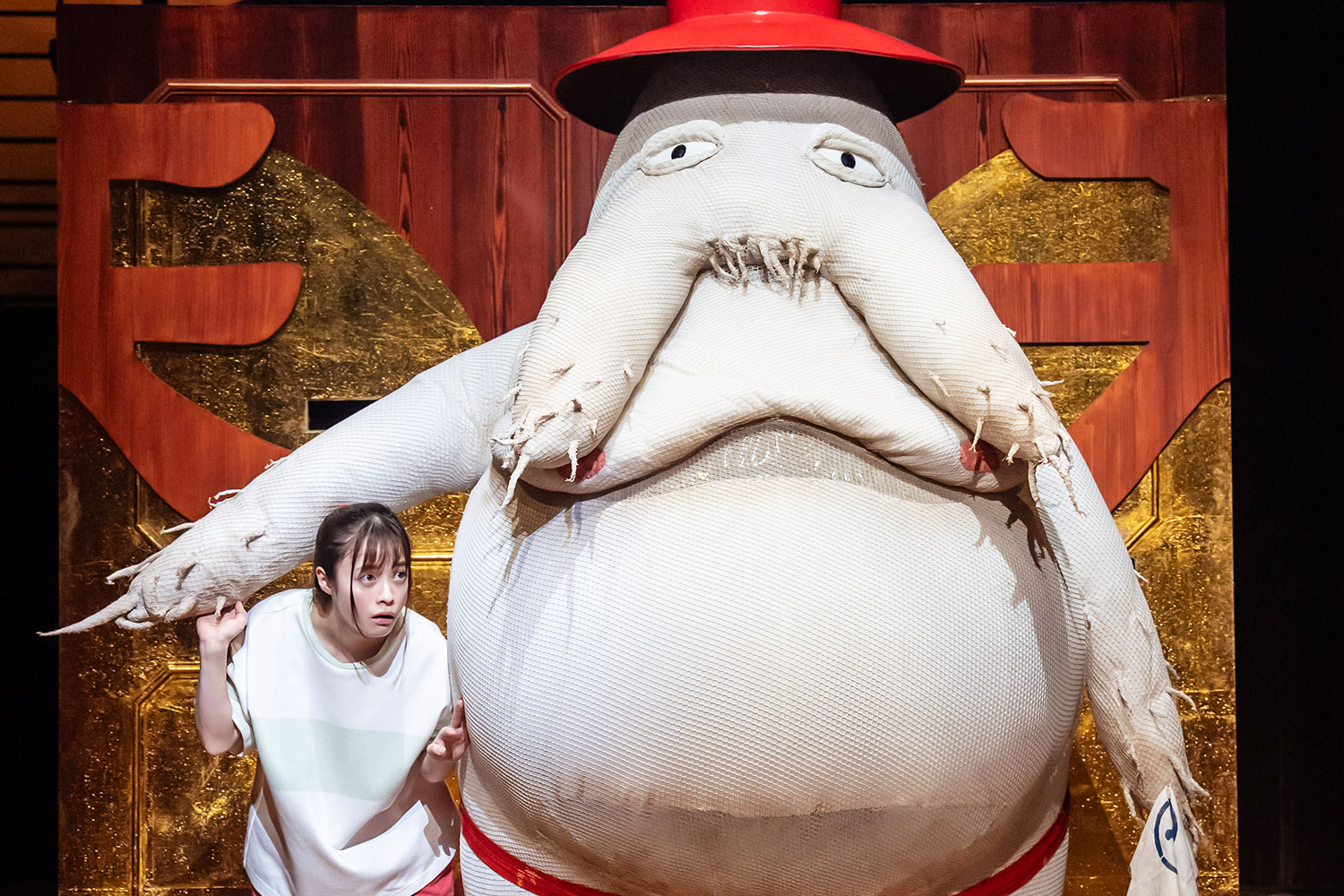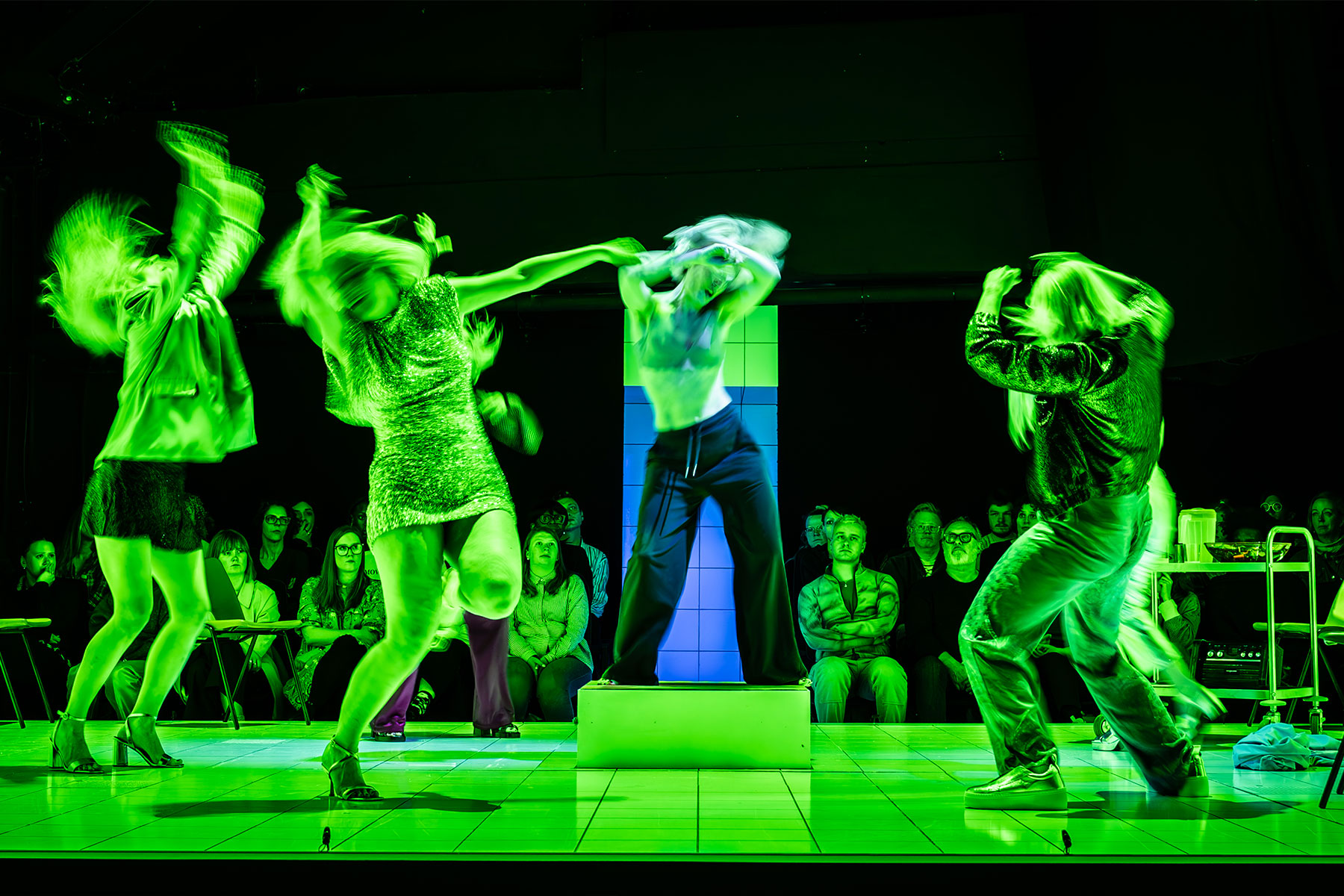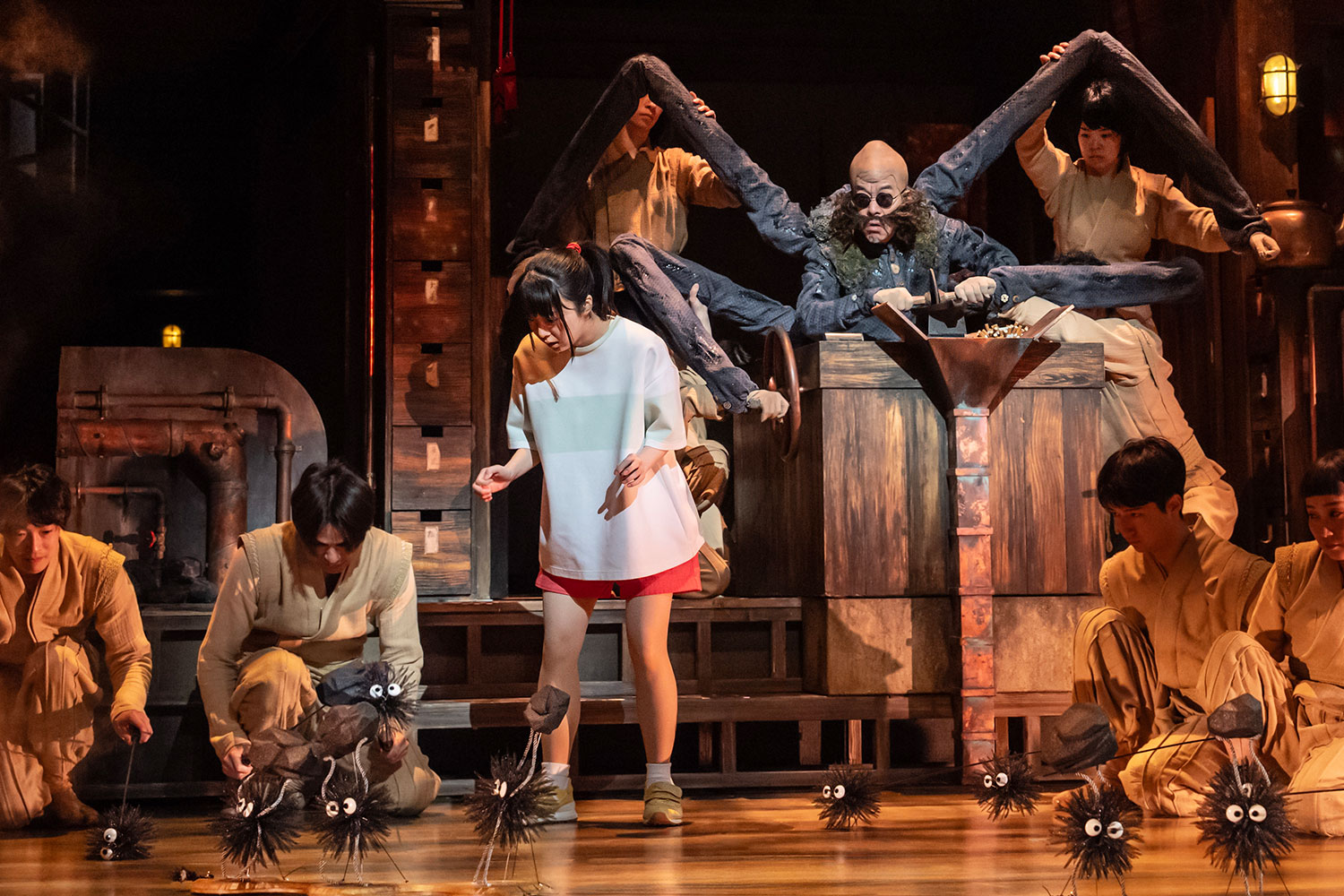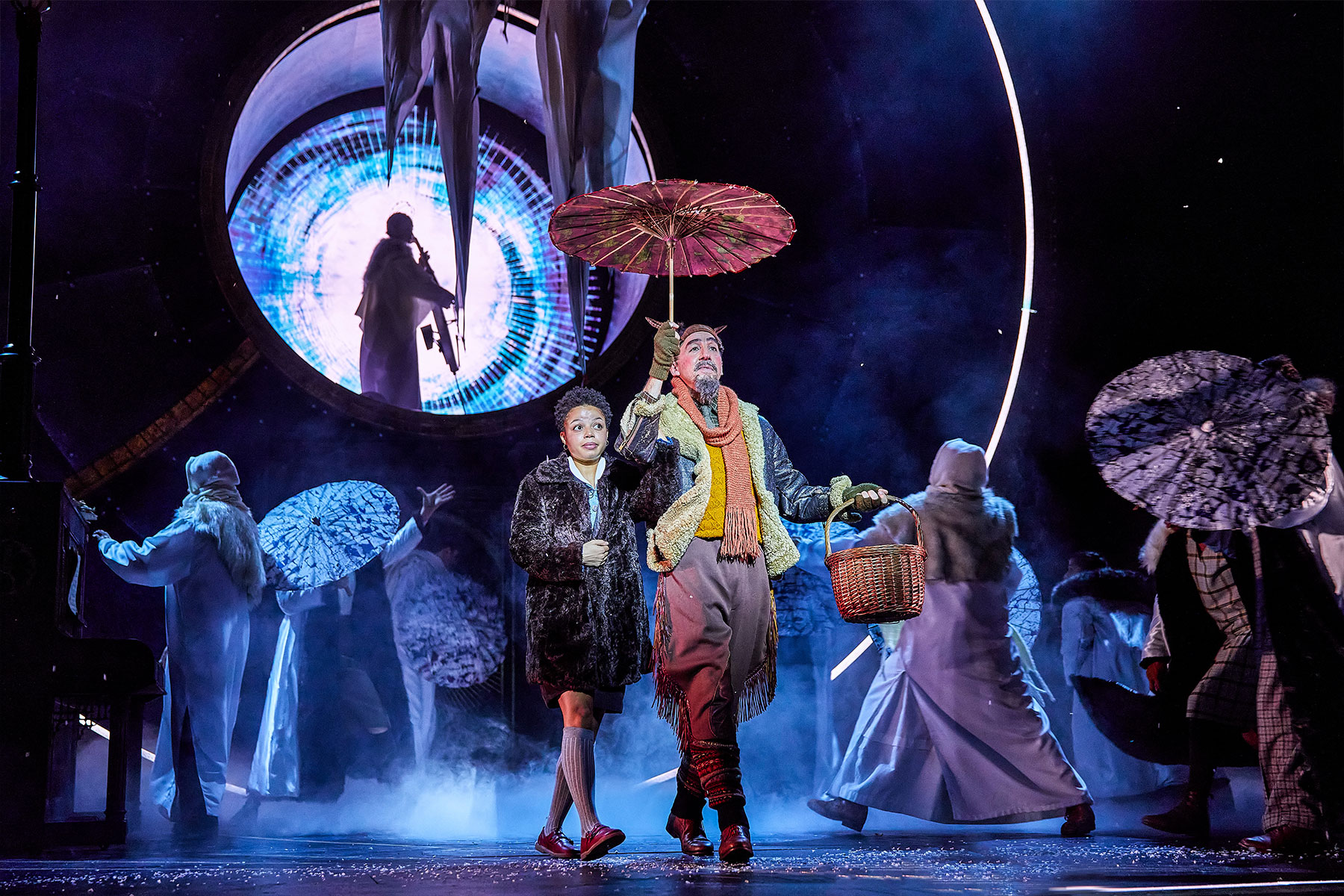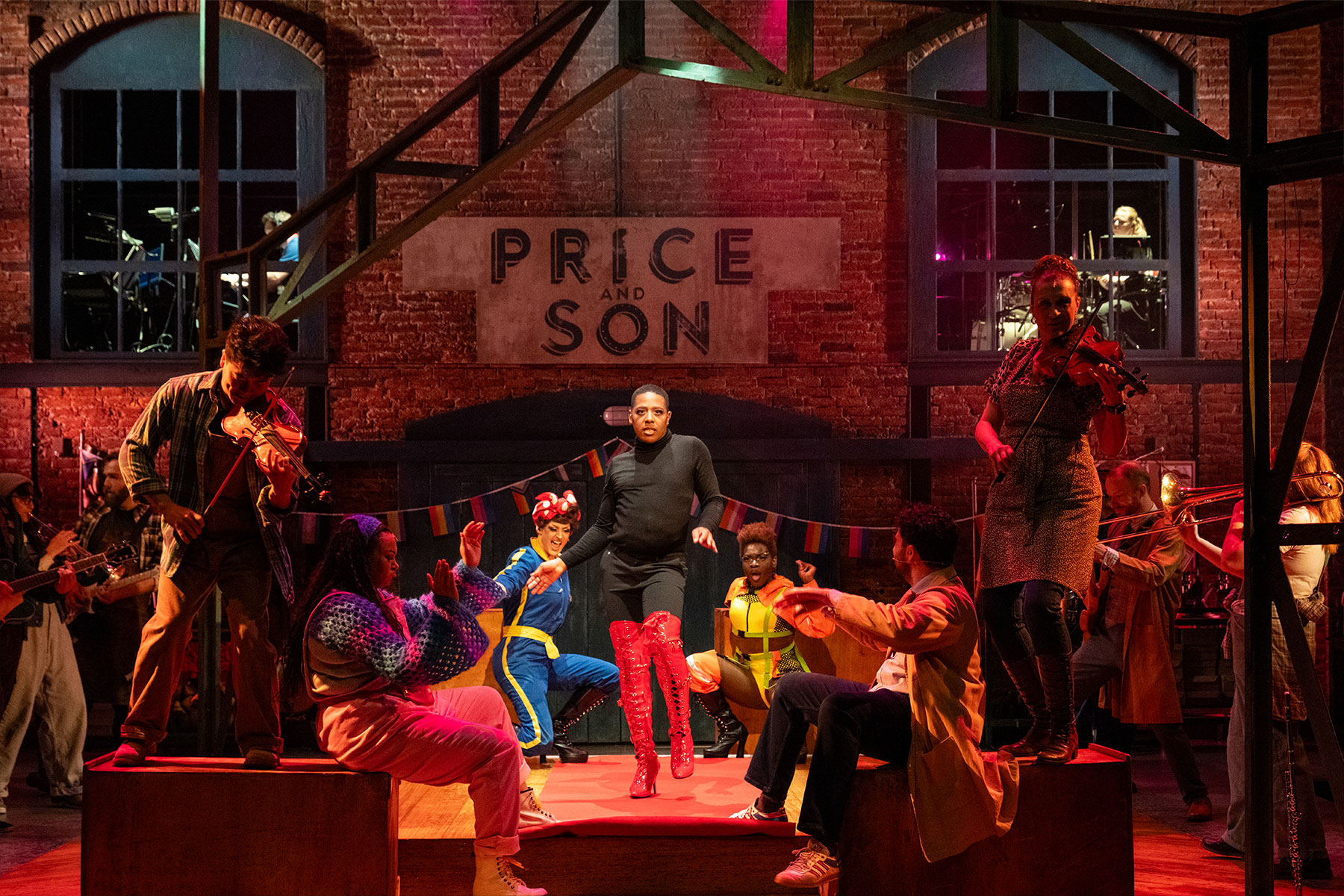A Midsummer Night’s Dream
Reviewed at the Britten Theatre, London
Ian Judge, directing Britten for the first time (although no stranger to Shakespeare) has brought a touch of raffish magic to Kensington as his production of A Midsummer Night’s Dream takes to the stage of, aptly, the Royal College of Music’s Britten Theatre.
A black disc of a stage is lit by two moons. In front of the close-up, pock-marked first one – as big as the circular stage itself – the fairies trip their roguish way, the luxury casting of the Trinity Boys’ Choir dressed like punkish Tudor choristers, with dirty roughs and spiky hair, joined by Luke Williams’ ginger and spiky-haired Puck, the aptly named Suzanne Shakespeare as Tytania and Philip Jones’ Oberon. For the mortals there is a much smaller full moon (unchanging and somewhat at odds with Theseus’ reference to a waning moon towards the end), and the interchange between them is cinematically efficient.
Here we have the two sets of muddled lovers – young Athenians Hermia and Lysander (Anais Heghoyan and Tyler Clarke), Helena and Demetrius (Monica Bancos and Peter Brathwaite) – and the sextet of ‘mechanicals’ ostensibly led by Ross McInroy’s Peter Quince, but really focused on Jimmy Holiday’s Nick Bottom. Whether Alex Duliba’s Robin Starveling actually needs a real dog (Tokyo) with him throughout every scene is debatable. A more disinterested performance is hard to imagine (from Tokyo, not Alex) with the potential audience distraction waiting for a ‘Blue Peter’ moment; happily avoided in this performance.
Extraordinarily this successful design concept, also encompassing the costumes, is completely unaccredited, although Mark Doubleday’s evocative lighting is rightly mentioned in the programme.
So the look of it is top class; how does everything else add up? Extremely well, I’m delighted to report. Michael Rosewell gets dedicated support from his small band in the pit, certainly up for the shifting, eerie challenges of Britten’s most atmospheric operatic score, playing to the generous acoustic of the Britten Theatre. And this first of two casts (fairy king and queen and the four young lovers change for the second and fourth performances) make the most of their parts, if – at times – losing their clear diction as they do occasionally in ensembles.
Lucky is the company and director who can cast their Puck from singing stock. Luke Williams is studying as a baritone, but takes to the spoken role like a duck to water, with a knock-on advantage of being able to properly sing his imitation of both tenor Lysander and baritone Demetrius in the ‘cheek by jowl’ chase and fight in dead of night, here with misty threads of dry ice leaking through the black stage. Similarly, taking the part of Theseus at short notice was composer-cum-bass David Hansford, paired nicely with voluptuous Rosie Aldridge as Hippolyta, an Amazon indeed with a rich mezzo to match.
Holiday’s Bottom is transformed into a complete ass, not just the usual head, but hooves on hands and feet and a decidedly large appendage as well. His headpiece had independent ears which waggled at jaunty angles, a superb comic creation in themselves. Judge is an astute director not to over direct the mechanicals’ performance of Pyramus and Thisbe, leaving Britten’s glorious operatic pastiches to carry much of the comedy, and the Soirées musicales-like burgamasque was all the funnier for attempting an Olympic sporting theme with the players in Grecian garb.
Of the utterly magical ending, where you may even receive a fairy’s blessing, perhaps I should say no more, so as not to spoil the surprise. Suffice to say the Trinity Boys Choir gets a major share of the curtain call and deservedly so.
Further performances 1, 3 & 4 July. On 1 & 4 July Christopher Lowrey and Colette Boushell play fairy king and queen, while the four lovers are Anna Huntley, John McMunn, Madeleine Pierard and Philip Tebb.
– Nick Breckenfield




